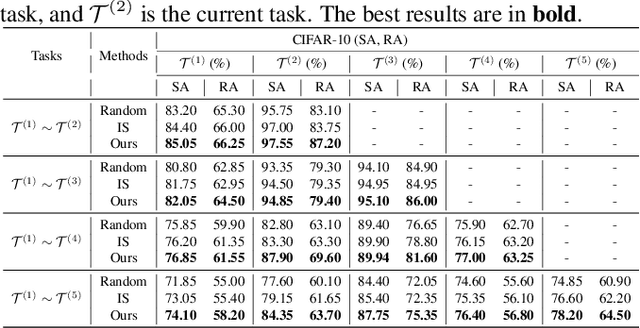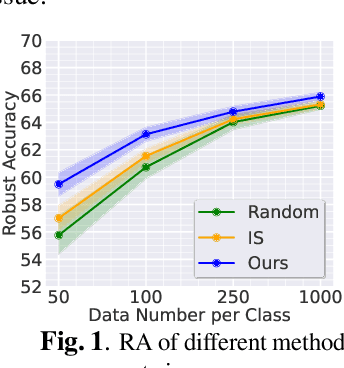Robustness-preserving Lifelong Learning via Dataset Condensation
Paper and Code
Mar 07, 2023

Lifelong learning (LL) aims to improve a predictive model as the data source evolves continuously. Most work in this learning paradigm has focused on resolving the problem of 'catastrophic forgetting,' which refers to a notorious dilemma between improving model accuracy over new data and retaining accuracy over previous data. Yet, it is also known that machine learning (ML) models can be vulnerable in the sense that tiny, adversarial input perturbations can deceive the models into producing erroneous predictions. This motivates the research objective of this paper - specification of a new LL framework that can salvage model robustness (against adversarial attacks) from catastrophic forgetting. Specifically, we propose a new memory-replay LL strategy that leverages modern bi-level optimization techniques to determine the 'coreset' of the current data (i.e., a small amount of data to be memorized) for ease of preserving adversarial robustness over time. We term the resulting LL framework 'Data-Efficient Robustness-Preserving LL' (DERPLL). The effectiveness of DERPLL is evaluated for class-incremental image classification using ResNet-18 over the CIFAR-10 dataset. Experimental results show that DERPLL outperforms the conventional coreset-guided LL baseline and achieves a substantial improvement in both standard accuracy and robust accuracy.
 Add to Chrome
Add to Chrome Add to Firefox
Add to Firefox Add to Edge
Add to Edge